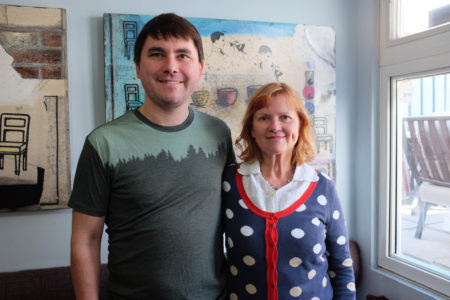Month: March 2017
From “I Am A Strange Loop”
Massey Grand Rounds Symposium 2017
Every year, the Massey Grand Rounds Symposium assembles scholars and practitioners in health-related fields to discuss issues of public importance.
This year’s theme was “Health and Environment: Air, Food, and Drugs” and included presentations on air pollution and asthma; sugar; illicit drugs; violence in urban environments; and housing. I took photos of the whole event.
CSI Toronto
The Allah Las
Massey College Don of Hall election
Late lunch
Grad school in March
Today was both an illustrative and exceptional day.
Breakfast was my standard porridge of kidney beans, quinoa, and mixed frozen vegetables, with a Whole Foods avocado as a bonus and topped with nutritional year and Sriracha sauce. I got a large coffee on my way to my research design class at Trinity College, where my fellow PhD student Erica Rayment presented her research proposal on the effects of women members of parliament on parliamentary discourse and gender policies.
Then I spent the afternoon reading at Massey College, in the welcome and recently unusual company of my friend Aldea. Having come across a reference in a paper on fossil fuel divestment, I dashed across the snowy street to Robarts Library to pick up first one and then a trio of books on universities that divested from apartheid South Africa. I was pleased to see that more universities are divesting from fossil fuels.
At five, a large group of junior fellows assembled in the common room to toast the election of Benjamin Gillard as Don of Hall for next year. It included a few friends who are rarely seen around the college these days, a few also in their fifth and final year of the fellowship, and lots of those who have become fellows in the last few years.
I won’t be attending tonight’s intermediate Judo class because my wrist is still injured and painful, but there is a talk my friend Katerina organized on the “The Hype & Hope of Artificial Intelligence” and I have no shortage of thesis reading and writing to do in the lead up to my own presentation next Tuesday, hopefully with departmental approval and ethical clearance to follow soon after.
Writing as successive approximation
With the possible exception of short spur-of-the-moment missives or a transcribed stream of consciousness, it seems to me that all writing is a process of successive approximation in which you begin with something which isn’t what you want at the end, but which provides a structure that allows you to reach the objective. In part, this is because it isn’t possible to keep every part of a piece of complex writing like an academic paper in mind simultaneously. Rather, we must rely on a mental map that allows us to make changes in one area while maintaining overall coherence. Otherwise, we could never write anything longer than the longest passage we’re capable of memorizing and reciting, or we could only write documents that lack coherence from part to part, like Montaigne’s cheeky essay “Of Drunkenness“, where he veers about between opinions and moral judgments. In one passage, he calls it “a gross and brutish vice” before going on to praise Germans who “drink almost indifferently of all wines with delight” and saying that the French are “too sparing of the favours of the god” for only drinking moderately at two meals a day.
This process for maintaining coherence has been made salient for me recently through the effort to revise my PhD proposal to meet both my and my committee’s expectations.
It’s interesting to consider the process of successive approximation in writing in light of the concept’s origins in the psychology of behaviour change. B. F. Skinner’s analysis concerned the efforts of one (theoretically more cognitively sophisticated) animal to influence another’s behaviour through differential reinforcement. I love this video on how to trim a dog’s nails as a demonstration.
While it may be undertaken in service of an outside person like a professor or academic supervisor, writing is a process where both the reinforcement and the behaviour are internal (some people give themselves tangible rewards for hitting targets but it’s not something I have ever done systematically). The general question of how to train your own brain is an interesting one, especially for those of us who can sometimes observe self-destructive tendencies in our own conduct.







